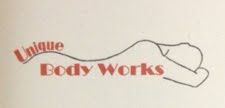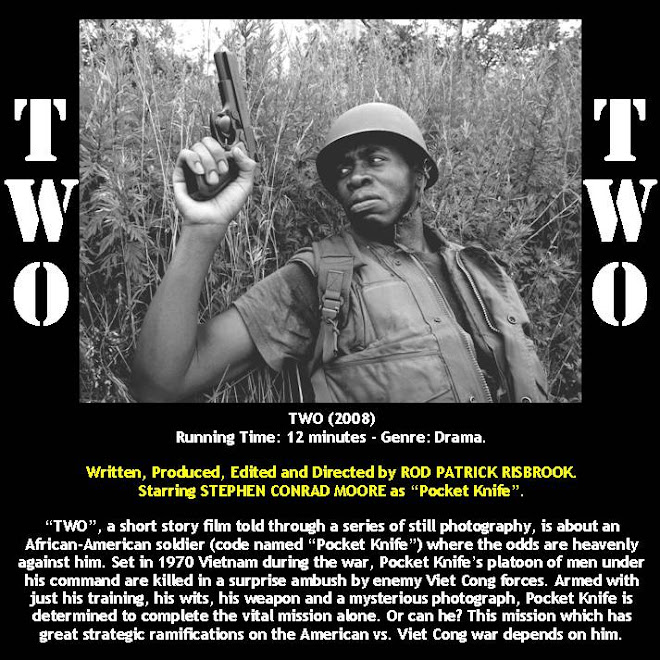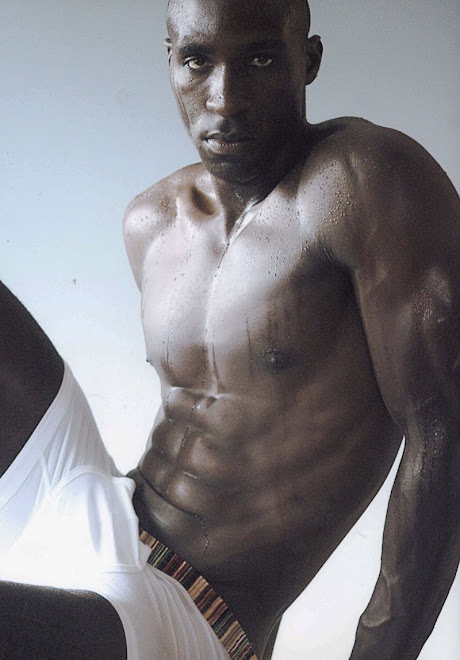
The Shadow & Act “Black Film” Report For 2009 (The Horror!)
By Tambay, on December 9th, 2009
By Tambay, on December 9th, 2009
IndieWire, LA  Weekly & Village Voice have posted the full list of every single film that’s been released this year (in the USA) – specifically, every film that’s screened in theatres for at least 1 week; whether indie or mainstream; foreign or domestically-produced; limited release, or wide; whether in 1 theatre in New York, or 3500 screens nationwide. It’s all there!
Weekly & Village Voice have posted the full list of every single film that’s been released this year (in the USA) – specifically, every film that’s screened in theatres for at least 1 week; whether indie or mainstream; foreign or domestically-produced; limited release, or wide; whether in 1 theatre in New York, or 3500 screens nationwide. It’s all there!
The total? 589 films - including films that haven’t yet been released, but will be, before the end of the year, in the next 3 weeks.
That’s a lot of movies, right? How many of those did you see? And maybe more importantly, how many fall under the category of “black films?”
Well, to answer the latter question… I looked over the list – although, to be honest, I did it rather quickly, so there’s a chance I missed 1 or 2; but I don’t think I missed more than that. But feel free to look over the list yourself and let me know if I missed any!
Regardless, it’s a tiny percentage! Ain’t nothin’ changed! Of the 589 movies released this year, I counted just 20 that we could classify as “black films.” A paltry 3.4%!
3.4%!!!!!!
It’s not even on par with the percentage of blacks that make up the country’s population, which is currently around 14%. If it at least matched population percentage breakdowns, I’d maybe be a little less perturbed.
For the sake of this post, I’m defining a “black film” as one that tells a story primarily about a black person (or black people). In essence, a black person has to be at the story’s center! So, a film like Law Abiding Citizen doesn’t count, even though Jamie Foxx had a lead role in it. It was Gerard Butler’s character’s story, ultimately, not Jamie Foxx’s.
The 20 “black films” are:
Black Dynamite, Precious, Not Easily Broken, I Can Do Bad All By Myself, Madea Goes To Jail, Medicine For Melancholy, American Violet, Armored, Confessions of an Ex-Doofus-Itchyfooted Mutha, Good Hair, Goodbye Solo, Next Day Air, Notorious, Obsessed, Munyurangabo, Pressure Cooker, Soul Power, 35 Shots of Rum, Tyson, Youssou N’Dour: I Bring What I Love.
Wow! Underwhelming isn’t it? Not only the number, but also the overall quality of films.
How many of those did you see? And, of more importance, how many are actually what we could call “good films?”
Of the 20, I’ve seen 15. The 5 I didn’t see are Munyurangabo, Pressure Cooker, Soul Power, Tyson, and Youssou N’Dour: I Bring What I Love – all documentaries, except for the 1st! I’ll catch them on DVD.
So, of the 20 films, 5 are documentaries; also, 3 have Tyler Perry’s name attached whether as writer/director or producer; the highest grossing of the 19 films is also a Tyler Perry product (Madea Goes To Jail, at $90 million); What else stands out to you?
But of the 15 that I saw, I’d put Medicine For Melancholy at #1, at the top of the list! Followed by 35 Shots Of Rum, Black Dynamite, American Violet, and Precious, rounding out my top 5, in that order.
To wrap it all up… despite any articles we’ve read, or interviews we’ve watched proclaiming positive changes in the industry, with regards to diversity, it’s quite clear that we’ve still got a loooooooong way to go, because this is just pathetic! 57 years after Ralph Ellison’s book was published, we’re still very much “invisible.”
The full list of 589 films can be found HERE.
 Weekly & Village Voice have posted the full list of every single film that’s been released this year (in the USA) – specifically, every film that’s screened in theatres for at least 1 week; whether indie or mainstream; foreign or domestically-produced; limited release, or wide; whether in 1 theatre in New York, or 3500 screens nationwide. It’s all there!
Weekly & Village Voice have posted the full list of every single film that’s been released this year (in the USA) – specifically, every film that’s screened in theatres for at least 1 week; whether indie or mainstream; foreign or domestically-produced; limited release, or wide; whether in 1 theatre in New York, or 3500 screens nationwide. It’s all there!The total? 589 films - including films that haven’t yet been released, but will be, before the end of the year, in the next 3 weeks.
That’s a lot of movies, right? How many of those did you see? And maybe more importantly, how many fall under the category of “black films?”
Well, to answer the latter question… I looked over the list – although, to be honest, I did it rather quickly, so there’s a chance I missed 1 or 2; but I don’t think I missed more than that. But feel free to look over the list yourself and let me know if I missed any!
Regardless, it’s a tiny percentage! Ain’t nothin’ changed! Of the 589 movies released this year, I counted just 20 that we could classify as “black films.” A paltry 3.4%!
3.4%!!!!!!
It’s not even on par with the percentage of blacks that make up the country’s population, which is currently around 14%. If it at least matched population percentage breakdowns, I’d maybe be a little less perturbed.
For the sake of this post, I’m defining a “black film” as one that tells a story primarily about a black person (or black people). In essence, a black person has to be at the story’s center! So, a film like Law Abiding Citizen doesn’t count, even though Jamie Foxx had a lead role in it. It was Gerard Butler’s character’s story, ultimately, not Jamie Foxx’s.
The 20 “black films” are:
Black Dynamite, Precious, Not Easily Broken, I Can Do Bad All By Myself, Madea Goes To Jail, Medicine For Melancholy, American Violet, Armored, Confessions of an Ex-Doofus-Itchyfooted Mutha, Good Hair, Goodbye Solo, Next Day Air, Notorious, Obsessed, Munyurangabo, Pressure Cooker, Soul Power, 35 Shots of Rum, Tyson, Youssou N’Dour: I Bring What I Love.
Wow! Underwhelming isn’t it? Not only the number, but also the overall quality of films.
How many of those did you see? And, of more importance, how many are actually what we could call “good films?”
Of the 20, I’ve seen 15. The 5 I didn’t see are Munyurangabo, Pressure Cooker, Soul Power, Tyson, and Youssou N’Dour: I Bring What I Love – all documentaries, except for the 1st! I’ll catch them on DVD.
So, of the 20 films, 5 are documentaries; also, 3 have Tyler Perry’s name attached whether as writer/director or producer; the highest grossing of the 19 films is also a Tyler Perry product (Madea Goes To Jail, at $90 million); What else stands out to you?
But of the 15 that I saw, I’d put Medicine For Melancholy at #1, at the top of the list! Followed by 35 Shots Of Rum, Black Dynamite, American Violet, and Precious, rounding out my top 5, in that order.
To wrap it all up… despite any articles we’ve read, or interviews we’ve watched proclaiming positive changes in the industry, with regards to diversity, it’s quite clear that we’ve still got a loooooooong way to go, because this is just pathetic! 57 years after Ralph Ellison’s book was published, we’re still very much “invisible.”
The full list of 589 films can be found HERE.











+LR+Edit+32.jpg)


.jpg)


























.jpg)



